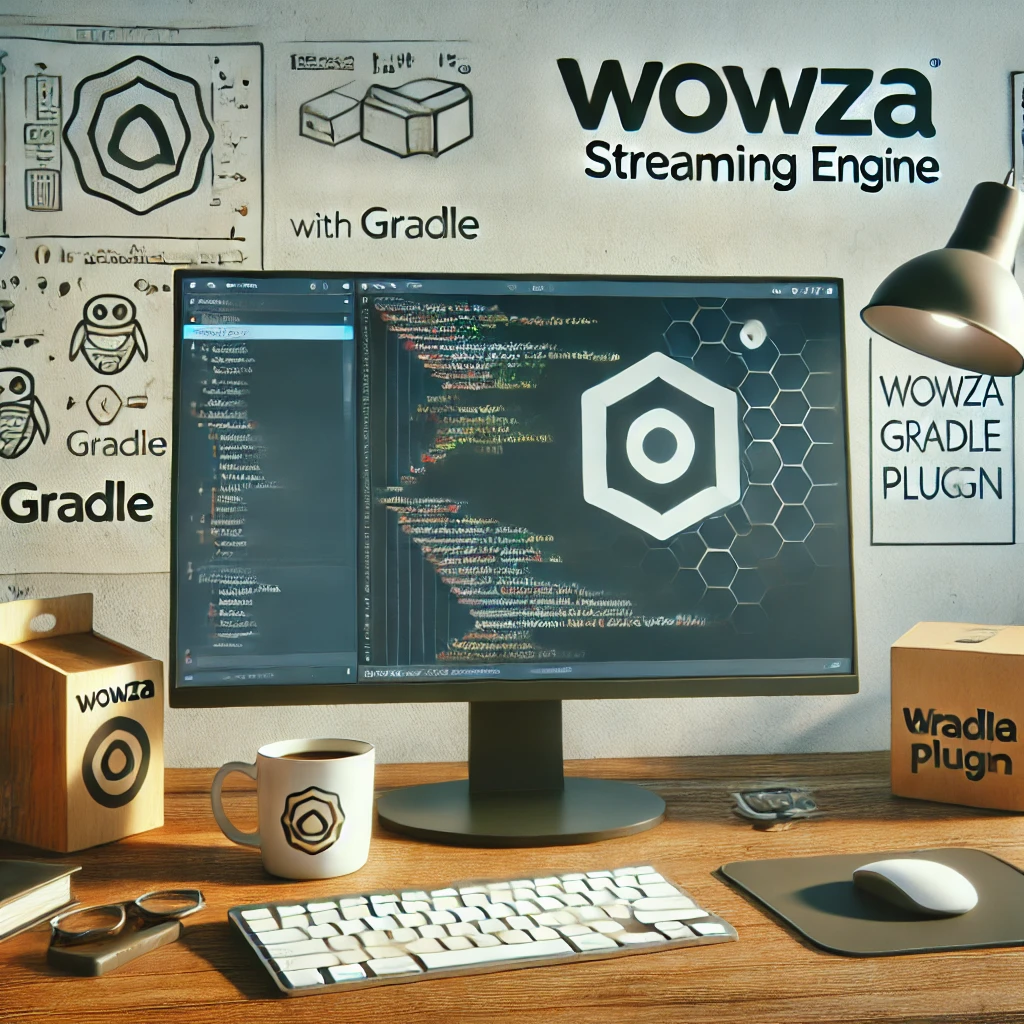Wowza Gradle Plugin
Gradle is widely used for automating builds and managing project dependencies, while Wowza Streaming Engine is a powerful media server software known for its robust streaming capabilities. Integrating Wowza Streaming Engine with Gradle through a Wowza Gradle Plugin can streamline development workflows, automate processes, and simplify configurations for media-centric applications. In this article, we’ll explore what a Wowza Gradle Plugin is, how it works, and the benefits it brings to developers working with streaming technologies.
What is the Wowza Gradle Plugin?
The Wowza Gradle Plugin is a Gradle-based integration tool designed to work with the Wowza Streaming Engine, allowing developers to build, deploy, and manage Wowza modules and applications seamlessly. By using Gradle’s versatile scripting and dependency management capabilities, this plugin helps automate and optimize the configuration, compilation, and deployment of Wowza modules.
Wowza Streaming Engine typically requires developers to manually package and deploy custom modules and applications. This involves several steps, such as compiling Java code, managing dependencies, configuring settings, and deploying files to the Wowza server. The Wowza Gradle Plugin simplifies these steps, letting developers focus on writing code rather than managing complex build processes.
Key Features of the Wowza Gradle Plugin
A Wowza Gradle Plugin comes with several features that make it ideal for streaming-related projects. Some of the most notable features include:
1. Automated Build and Compilation
With the Wowza Gradle Plugin, developers can automate the build and compilation of Wowza modules and applications, reducing manual intervention and potential errors. This includes building the necessary JAR files and managing dependencies, ensuring compatibility with Wowza’s APIs and frameworks.
2. Streamlined Deployment Process
Deploying custom Wowza modules can be challenging, especially in complex environments. The plugin streamlines this process by automating the transfer of files to the Wowza Streaming Engine server, eliminating the need for manual copying and configuration. This allows for faster iterations and more efficient testing cycles.
3. Dependency Management
Gradle’s dependency management system ensures that all required libraries and dependencies are correctly resolved and included in the build. This is particularly useful for Wowza developers, as it avoids compatibility issues that may arise due to mismatched library versions or missing dependencies.
4. Customizable Configuration
The Wowza Gradle Plugin allows for flexible configuration options, enabling developers to customize settings specific to their streaming applications. This can include options for specifying server paths, defining custom tasks, or integrating with other plugins to create a seamless workflow.
5. Improved Debugging and Testing
With streamlined deployment and automated builds, debugging and testing become easier. The plugin also allows for integration with testing frameworks, letting developers perform unit and integration testing on Wowza modules to ensure optimal performance before deployment.
Benefits of Using the Wowza Gradle Plugin
The Wowza Gradle Plugin provides several benefits to developers who work with Wowza Streaming Engine. Here are some of the primary advantages:
1. Increased Efficiency and Productivity
By automating tasks such as compilation, deployment, and dependency resolution, the plugin frees up time for developers, enabling them to focus on coding and application logic. This efficiency reduces errors caused by manual configurations, leading to a faster development lifecycle.
2. Consistency Across Environments
The Wowza Gradle Plugin makes it easy to maintain consistency across different development and production environments. Developers can define configurations within Gradle files, ensuring that the same setup is applied across all instances. This is crucial for large projects where different teams or environments may require consistent configurations.
3. Simplified Project Management
Gradle’s declarative approach allows for easier project management, even for large or complex Wowza applications. Through the use of Gradle tasks, developers can manage various stages of the build process within a single configuration file, reducing the need for multiple scripts or manual steps.
4. Improved Collaboration
With the Wowza Gradle Plugin, team members can collaborate more effectively by sharing configurations and dependencies within the Gradle build file. This shared setup reduces onboarding time for new developers, who can easily understand the project’s structure and configuration.
Getting Started with the Wowza Gradle Plugin
To get started with the Wowza Gradle Plugin, it’s essential to set up your development environment correctly. Here is a step-by-step guide:
Step 1: Install Wowza Streaming Engine
Ensure that you have Wowza Streaming Engine installed and running on your system. The plugin relies on the Wowza API libraries, so having an active Wowza installation is necessary.
Step 2: Configure Gradle
Gradle should be installed and configured on your system. If not, download and install Gradle from the official Gradle website.
Step 3: Set Up the Plugin in build.gradle
In your project’s build.gradle file, add the Wowza Gradle Plugin to enable Wowza-specific tasks. For example:
plugins {
id 'com.wowza.gradle.plugin' version '1.0'
}
You may also need to specify repositories and dependencies related to Wowza:
repositories {
mavenCentral()
}implementation ‘com.wowza:wowza-streaming-engine-sdk:4.8.15’
}
Step 4: Define Custom Tasks
Define custom Gradle tasks within your build.gradle file to automate deployment steps, such as compiling your Java code, packaging the JAR files, and copying them to the Wowza server.
task deployWowzaModule(type: Copy) {
from 'build/libs/your-module.jar'
into '/path/to/wowza/modules'
}
Step 5: Build and Deploy
With your tasks defined, you can now build and deploy your Wowza module with a single Gradle command:
gradle deployWowzaModule
This will compile your code, package it, and deploy it to the Wowza server, ready for testing or production use.
Best Practices for Using the Wowza Gradle Plugin
1. Use Version Control for Gradle Files
Storing your build.gradle file in a version control system, such as Git, ensures that configuration changes are tracked and can be reviewed or reverted if needed. This is especially useful for collaborative projects.
2. Regularly Update Dependencies
The Wowza SDK and related libraries are frequently updated with new features and security patches. Keeping your dependencies up to date ensures that your Wowza modules are compatible with the latest releases.
3. Integrate with CI/CD Pipelines
For larger projects, consider integrating the Wowza Gradle Plugin with a CI/CD pipeline (such as Jenkins, GitLab CI/CD, or GitHub Actions). This allows for automated testing and deployment, improving reliability and streamlining the release process.
4. Document Configuration Settings
Documenting any custom tasks or settings in your Gradle files makes it easier for new team members to understand the build process. This can include notes on deployment paths, specific Wowza configurations, and instructions for running custom tasks.
5. Test Modules Thoroughly
Ensure that your W0wza modules are thoroughly tested before deployment. The W0wza Gradle Plugin’s automation capabilities make it easier to conduct frequent tests, so take advantage of this to catch potential issues early in the development cycle.
Troubleshooting Common Issues
Issue 1: Dependency Conflicts
Sometimes, dependency conflicts may arise if multiple versions of a library are included. Gradle’s dependencyInsight task can help identify and resolve such issues. Run the following command to inspect dependencies:
gradle dependencyInsight --dependency <library-name>
Issue 2: Plugin Compatibility
Ensure that you are using a compatible version of the W0wza Gradle Plugin with your version of Gradle and W0wza Streaming Engine. Consult the plugin’s documentation for compatibility guidelines.
Issue 3: Permission Errors
Deployment tasks may require elevated permissions, especially if you’re copying files to a server. Verify that your Gradle tasks have the necessary permissions or consider running the tasks with appropriate user privileges.
Conclusion
The Wowza Gradle Plugin is an invaluable tool for developers working with Wowza Streaming Engine, offering automation, efficiency, and streamlined workflows. By leveraging Gradle’s capabilities, developers can manage builds, dependencies, and deployments more effectively, reducing the time and effort required for setup and configuration. With the Wowza Gradle Plugin, building high-performance streaming applications becomes faster and more manageable, paving the way for innovation in media streaming solutions. Whether you’re new to Wowza or an experienced developer, integrating the Wowza Gradle Plugin into your workflow can lead to a smoother, more productive development experience.










